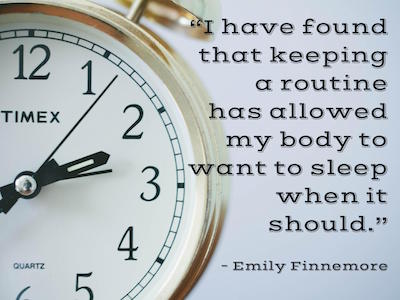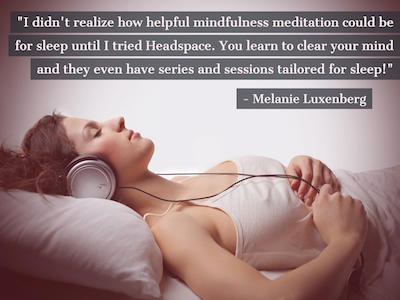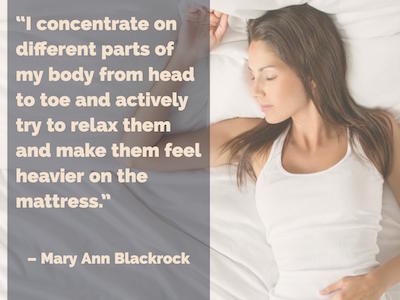Error! You must specify a value for the Video ID, Width, Height and Anchor parameters to use this shortcode!
Sleep is important for everyones health, and is especially critical for those with bipolar disorder. Bipolar disorder has been linked to disruptions in circadian rhythms, and many people notice a connection between sleep and their mood.
We asked our volunteers who live with bipolar disorder what they do to help them with sleep, and they stressed the importance of getting into the right mindset before bed. Here are their suggestions for preparing for bed and falling asleep.
1. Schedule at least an hour to relax and wind down before you go to bed.
2. Try to go to bed and wake up at the same time every day so your body will get in a routine and prepare itself for sleep.
I have found that keeping a routine has allowed my body to want to sleep when it should. Emily Finnemore

3. Avoid anything too stimulating before bed like news or intense dramas.
4. Diffuse essential oils that you find relaxing.
5. Listen to relaxing music when you are getting ready for bed.
6. Do some simple stretches or relaxing yoga poses.
7. Meditate, if you’re not sure how, try using a meditation app like Headspace.
“I didn’t realize how helpful mindfulness meditation could be for sleep until I tried Headspace. You learn to clear your mind and they even have series and sessions tailored for sleep!” – Melanie Luxenberg

8. Try breathing and relaxation exercises.
I do breathing exercises and actively slow down my breathing, relaxation exercises by successively concentrating on different parts of my body from head to toe and actively try to relax them and make them feel heavier on the mattress. Mary Ann Blackrock

9. Try using a weighted blanket.
10. Use blackout curtains or a sleep mask.
11. Use a white noise or sound machine, especially if you live in a noisy area.
12. If you wake up in the middle of the night, dont look at the clock and avoid turning on lights.
If you have trouble sleeping most nights and these tips dont seem to help, you might want to talk to a professional about additional treatment options. Cognitive Behavioral Therapy (CBT) has been found to be helpful for insomnia. There are also different options for sleep medications, including some that are over the counter. Talk to your doctor to see what option is right for you, and do not take any over the counter medication or supplement without talking to your doctor in case it could interact with your medication.

